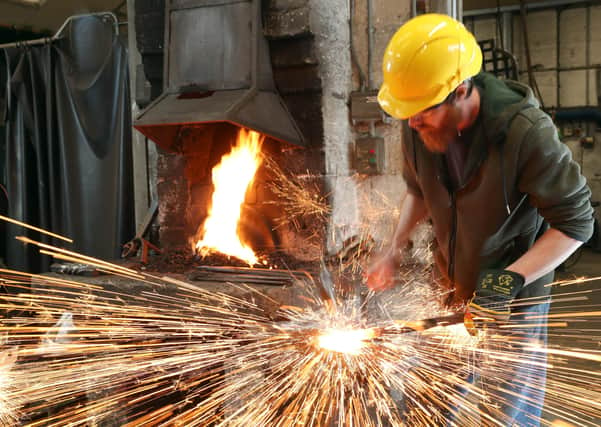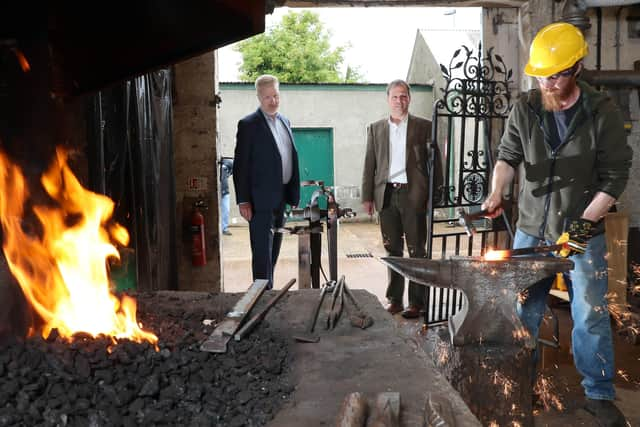NI blacksmith Owen Mort forging ahead with heritage skills


As a blacksmith he also takes care not to have too many irons in the fire.
The 33-year-old from Clogher, who runs his own blacksmithing business, started out as a mechanical engineer before finding his way to the forge.
Advertisement
Hide AdAdvertisement
Hide AdHe’d retrained as a welder and was working at the shipyard when he saw an advertisement to upskill as a blacksmith.


The Department for Communities is hoping others can follow Owen’s path and apply to a 10-month training programme that bridges the gap between basic qualifications and becoming a master craftsperson in heritage and traditional building crafts.
The NI Heritage Skills Programme was launched by the department’s Historic Environment Division in partnership with The Prince’s Foundation. Its aim is to address the skill shortage of qualified heritage craftspeople in an effort to maintain NI’s historic sites including Carrickfergus Castle, Navan Fort, Devenish Island monastic remains and Derry’s Walls.
Owen said: “I feel like I’ve stepped back a bit in time, going from engineering, fabricating, welding, back to blacksmithing where it all originated from.
Advertisement
Hide AdAdvertisement
Hide Ad“There aren’t a huge number of blacksmiths in Northern Ireland and even fewer with the heritage skills.
“There’s a lot of people who maybe do it as a hobby and there will be some who have done a degree in blacksmithing on the art side of things.
“I’d always seen the old traditional wrought iron gates and marvelled at how much work and skill went into them. I was just a welder who could knock up a set of simple gates, I admired the skill that went into that.”
He added: “I’ve done quite a few jobs that would be restoration of gates that somebody would look at and say they’re done, they can’t be fixed.
Advertisement
Hide AdAdvertisement
Hide Ad“Those are the sort of jobs I really like because it takes a lot of work and skill putting them back to how they were.”
Owen goes to work armed with a collection of 36 hammers and 24 tongs, but no gloves: “Most blacksmiths don’t wear gloves, you put your hand over something to find out if it’s hot before you pick it up.
“The fire is maybe 2,000 degrees or close to it, the bit of metal at the end you’ve put in the fire – it takes a very short space of time for it to heat up, but it takes a while for that to move up the bar. As long as you’re wearing eye protection that’s really the only thing you need to worry about.”
Applications for the NI Heritage Skills Programme are open until August 28. For more info go to www.nidirect.gov.uk/master-craftsperson